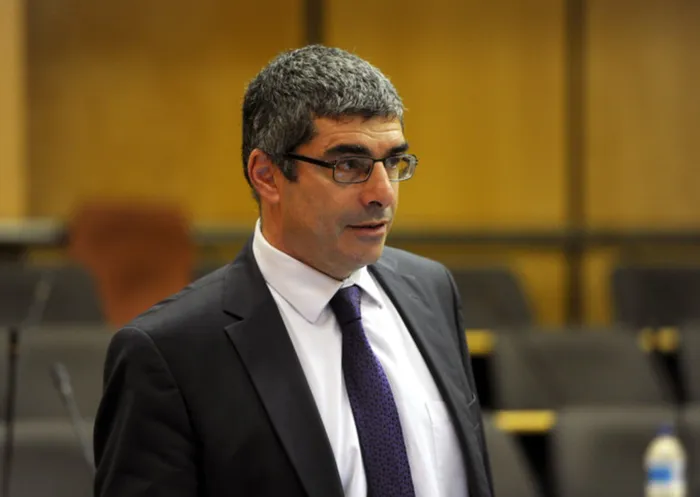Madlanga Commission findings powerless without Ramaphosa’s action, Commission admits

Evidence leader advocate Matthew Chaskalson.
Image: File
The evidence leader for the Commission of Inquiry into alleged criminal infiltration of the court system, advocate Matthew Chaskalson, has explained the scope of the upcoming hearing by explaining that the findings made by the body will not be legally enforceable.
Chaskalson clarified that the commission's findings and recommendations will be submitted to President Cyril Ramaphosa, who would then determine the appropriate course of action.
"All we can do is to make recommendations to the president. Our recommendations don't bind the president; it doesn't bind the people in respect of whom we make those recommendations. The function of this body is to conduct a public hearing for the purpose of making recommendations, we don't make findings that are binding," he said.
Chaskalson was speaking on Monday during a media briefing on a commission to be chaired by retired Constitutional Court justice Mbuyiseli Madlanga.
The commission, which has been dubbed the Madlanga Commission of Inquiry, is set to begin on September 17, 2025, following some delays.
The judicial inquiry was established by President Ramaphosa in July 2025 to probe serious allegations of corruption, political interference, and criminal syndicate infiltration within South Africa’s law enforcement and intelligence structures.
The commission’s formation followed explosive allegations made by KwaZulu-Natal Police (KZN) Commissioner Lieutenant General Nhlanhla Mkhwanazi, who claimed that a sophisticated criminal syndicate, including drug cartels, has deeply infiltrated the country’s justice system — compromising investigations and protecting criminal networks.
He alleged that suspended Police Minister, Senzo Mchunu, was involved in the political interference in the ministry.
Initially scheduled to begin on September 1, the hearings were postponed due to delays in installing and testing the commission’s Information and Communication Technology (ICT) systems.
Commission spokesperson Jeremy Michaels confirmed that those systems are now fully operational.
“Whilst the delay in procuring these items was regrettable, the necessary systems are up and running,” he added.
In addition, the commission has activated a confidential whistle-blower hotline to receive reports from the public.
Mkhwanazi, who will be the first to testify, is expected to detail how criminal elements have allegedly embedded themselves within the SAPS, Crime Intelligence, and other key institutions.
His claims have sparked nationwide concern and drawn comparisons to the State Capture era.
The commission has also been consulting with multiple other witnesses, though their identities remain undisclosed due to security concerns.
Meanwhile, Parliament’s Ad-Hoc Committee on Police and Justice has also expressed interest in hearing from Mkhwanazi, suggesting that his testimony could have far-reaching legal and political implications.
The Madlanga Commission is set to become one of the most significant public inquiries in post-apartheid South Africa, with the potential to expose deep-rooted corruption and reshape the future of the country’s criminal justice system.
sinenhlanhla.masilela@iol.co.za
IOL News